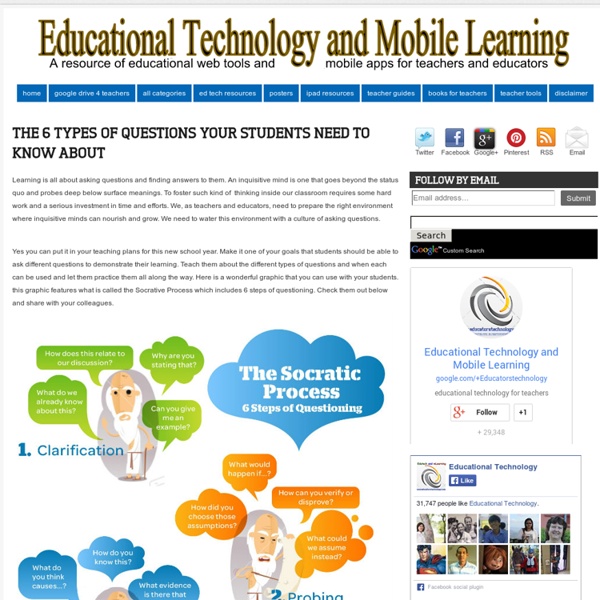



Review of Net Smart: How to Thrive Online | Paying Attention in an Information Rich World Rheingold, H. (2012). Net smart: How to thrive online. Cambridge, MA: The MIT Press. Critics of modern social media and our emerging hyperlinked culture are abundant. Critics warn us that Google might be “making us stupid,” as Nicholas Carr put it. At the other extreme are the cheerleaders. Until I read Net Smart: How to Thrive Online, I thought its author, Howard Rheingold, was a cheerleader. However, in this book, Rheingold’s position is much more nuanced, and indeed helpful, than that of either the critics or the cheerleaders. Here is the author’s own teaser for the book. Rheingold’s thesis is that the Internet can make us either smart, or stupid. Five Literacies The author proposes to show us five key information literacies that are essential to this task. 1. Should we be clicking on the Facebook icon? The answer to such a question is not always obvious. Similarly, should you be focused on your Smart Phone or watching your kid play soccer? 2. 3. 4. 5. Source: Rheingold (2012) p. 6.
Quadramas as a Reflection Tool - Teaching in the Early Years I am so excited about our second Bright Ideas Blog Hop! We have over 180 participants this time around, all with a fantastic idea on their blogs! Get your paper and pencil ready for all of the great ideas you are about to find! This month my “Bright Idea” is using quadramas as a reflection tool. I have used quadramas with my students for many different purposes – reading response activities, research presentation, etc. Below are the instructions for making a quadrama: Begin with 4 pieces of cardstock paper. Next, each piece needs to be cut into a perfect square. When you unfold the piece of paper after cutting, you will get a nice square. Each square will already have one crease in it from the previous fold, but we need a crease going the other way as well. When you unfold you will see two distinct creases. Now you need to cut on one of the creases, just to the middle of the square: Now, you layer the flaps one on top of the other to make one “quadrant.” Here is a view from the top:
How to Test For One Hundred Percent Truth - the 3 Emergence Truth Tests This article was written only months before I discovered the map of the mind. And while these ideas are still true, our standards for accessing truth have since been raised a thousand fold. More important, in 2010, I began work on a new scientific method, one with which discoveries are guaranteed. This method also contains a far more stringent test for truth. This said, this article is still important in that is shows the relationships between my work on mind and consciousness, emergence personality theory, and emergence therapy. It also shows how anything posited had (and still has to) test as true from all three prospectives; from the view of the mind, from the perspective of personality, and as part of a working therapy. On What Do We Base Our Three Emergence Based Theories? The First Truth Test - the Two Geometries (the meta truth test) Socrates had four main areas of study. Logically, one cannot fault Socrates here. Truth for Socrates was a much purer goal. Why this order? Steven
TeacherTube - Teach the World URFIST - Accueil - URFIST de Lyon Project Information Literacy: Smart Talks Howard Rheingold: "Crap Detection 101: Required Coursework" Project Information Literacy, "Smart Talks," no. 5, January 3, 2011 Subscribe our Smart Talk RSS feed Printer-friendly version Photo Credit: Judith Maas Rheingold If one word captures Howard Rheingold's writing about the political, cultural, and social impact of new technologies, that word is prescient. In 1987, Howard was one of the first to write about the peer-to-peer power of virtual communities building collective intelligence. Not only does he detect change before everyone else does, but Howard also writes about the complex interplay of technology, society, and culture with clarity, depth, candor, and profound insight. We caught up with Howard in late December and shared some of Project Information Literacy's (PIL) latest findings with him. PIL: Since 2003, you have been teaching college students at Berkeley and Stanford. Dealing with the rate of change is also an issue. Your last question is a big one. Howard: Meet Buffy J.
1000s FREE Primary Teaching Resources & Printables - EYFS, KS1 and KS2 - SparkleBox LongURL | The Universal Way to Expand Shortened URLs Evaluating Web Pages: Techniques to Apply & Questions to Ask 1. What can the URL tell you? Techniques for Web Evaluation : 1. 2. 2. 1. INSTRUCTIONS for Truncating back a URL: In the top Location Box, delete the end characters of the URL stopping just before each / (leave the slash). Continue this process, one slash (/) at a time, until you reach the first single / which is preceded by the domain name portion. 3. Check the date on all the pages on the site. 3. 1. What kinds of publications or sites are they? Are they real? 3. Expect a journal article, newspaper article, and some other publications that are recent to come from the original publisher IF the publication is available on the web. Look at the bottom of such articles for copyright information or permissions to reproduce. 4. 1. a. Type or paste the URL into alexa.com's search box. b. 1. The pages listed all contain one or more links to the page you are looking for. If you find no links, try a shorter portion of the URL, stopping after each /. 2. 5. 1. 2. WHY? More About Evaluating Web Sources